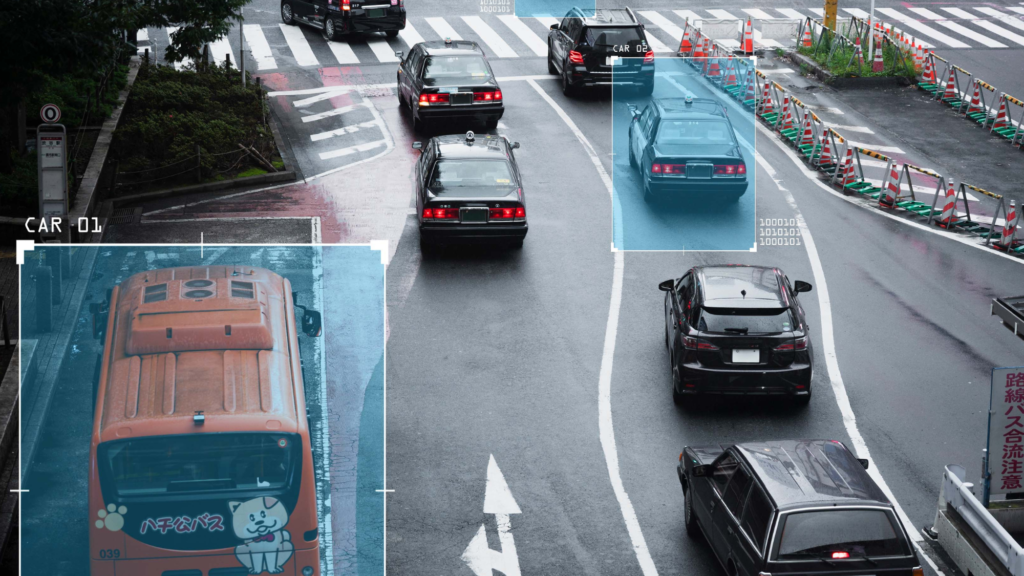How ALPR is Revolutionizing Crime Prevention?
Automatic License Plate Recognition (ALPR) technology is transforming the landscape of crime prevention and law enforcement. By harnessing advanced image processing and machine learning algorithms, ALPR systems have become powerful tools in the fight against crime.
This technology, also known as Automatic Number Plate Recognition (ANPR) in some regions, has garnered attention for its potential to enhance surveillance, solve crimes, and improve public safety. 4D registration plates, as ANPR, plays an important role in providing security against crime. Let us explore how ALPR is revolutionising crime prevention.
Understanding (ALPR) Automatic License Plate Recognition Technology:
ALPR technology involves the use of specialised cameras and software to automatically capture images of licence plates on vehicles. The images are then processed to extract the licence plate numbers, which are compared against a database of known or suspected vehicles. The technology can be used for various applications, ranging from toll collection and parking management according to new laws regarding number plates in UK.
Enhanced Surveillance and Crime Prevention:
One of the key ways ALPR is revolutionising crime prevention is through enhanced surveillance. Automatic License Plate Recognition (ALPR) systems can be deployed on police vehicles, fixed installations, or even integrated into city infrastructure. These systems continuously scan the licence plates of passing vehicles and instantly compare them against databases of vehicles associated with criminal activity, stolen vehicles, outstanding warrants, and more. When a match is found, law enforcement officers are alerted, allowing them to take immediate action.
Efficient Data Analysis:
The power of ALPR lies in its ability to rapidly process and analyse large amounts of data. Traditional methods of manually recording licence plate numbers and cross-referencing them with databases are time-consuming and prone to errors. Automatic License Plate Recognition (ALPR) systems automate this process, significantly reducing the workload for law enforcement personnel. This efficiency enables officers to focus their efforts on proactive crime prevention rather than administrative tasks.
Hotlist Alerts and Real-time Notifications:
Automatic License Plate Recognition (ALPR) technology is equipped with hotlist capabilities, which allow law enforcement agencies to maintain lists of vehicles associated with criminal activity. The system can instantly compare captured licence plates against these lists, generating real-time alerts when a match occurs. This proactive approach enables law enforcement to intercept vehicles involved in crimes, locate missing persons, and recover stolen property quickly.
Investigative Support:
Automatic License Plate Recognition (ALPR) technology also serves as a valuable tool in criminal investigations. Historical ALPR data can be used to track the movement of vehicles linked to criminal activities. By analysing patterns and identifying common routes taken by suspects, law enforcement agencies can gain crucial insights into criminal behaviour and better allocate resources to prevent future incidents.
Crime Pattern Recognition:
ALPR (Automatic License Plate Recognition systems) contribute to crime prevention by identifying patterns in vehicle movement and behaviour. By analysing data from various sources, such as crime reports, ALPR hits, and location-based information, law enforcement agencies can identify trends and correlations. This data-driven approach enables them to predict potential criminal activities and allocate resources strategically to deter and respond to crime.

Community Policing and Transparency:
ALPR (Automatic License Plate Recognition) technology can promote community policing and transparency by enabling law enforcement agencies to share information about their operations and activities. Agencies can use ALPR data to showcase their efforts in crime prevention, recovery of stolen vehicles, and response to emergencies. This transparency builds trust between law enforcement and the community, fostering a collaborative approach to crime prevention.
Challenges and Concerns:
While ALPR (Automatic License Plate Recognition) technology offers numerous benefits, it also raises important concerns related to privacy and data security. The continuous collection and storage of licence plate data can lead to the tracking of individuals’ movements and potentially infringe on their privacy rights. Striking a balance between effective crime prevention and safeguarding individuals’ privacy remains a challenge that needs to be addressed through appropriate regulations and policies.
We can say that ALPR technology is revolutionising crime prevention by providing law enforcement agencies with powerful tools to enhance surveillance, detect criminal activities, and allocate resources efficiently. The speed and accuracy of ALPR systems contribute to swift response times and proactive crime prevention efforts.
However, it’s crucial to address privacy concerns and establish clear guidelines for data collection and usage. As ALPR (Automatic License Plate Recognition) technology continues to evolve, it holds the potential to reshape the landscape of crime prevention and create safer communities. ALPR is very beneficial against all kinds of crime related to automobiles, and they provide complete safety against all these concerns.






